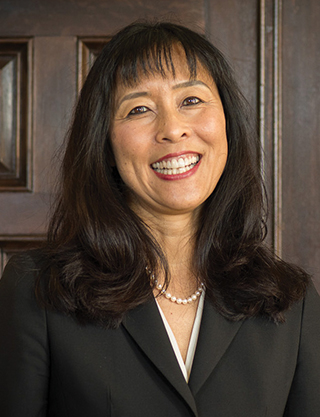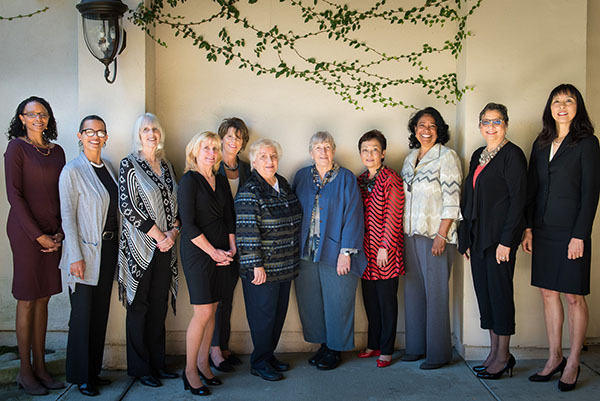
JACQUELINE CHEN
Jacqueline Chen (8351), a distinguished member of the technical staff at the Combustion Research Facility, was inducted into the Alameda County Women’s Hall of Fame on March 19 in Oakland, California.
Jackie is being honored in the area of Science and Technology for her contributions to using the world’s fastest supercomputers to advance the study of turbulence-chemistry interactions that underpin the operation of gas turbines, automobile engines, and other practical combustion devices.
Jackie says she enjoys leveraging the latest advances in computation to understand the intricacies of turbulence and how it modulates chemical kinetic processes inside an engine. She describes her work as akin to shining a numerical microscope on a small piece of the combustion puzzle inside an engine and understanding how chemical reactions work, and then figuring out how to control it in a way that burns more efficiently and leaves a smaller carbon footprint.
“This honor means a lot to me,” Jackie says. “First, because combustion is still the predominant source of transportation energy, and improvements in efficiency and emissions can affect both the nation and the world. This award indicates that my work and the larger Department of Energy programs that fund it are making a difference. Second, I’m proud to be an example of how women can pursue fulfilling STEM careers traditionally dominated by men while also achieving work-life balance.”
Impacting the world through science and technology
Jackie says if young women and girls focus on math and science in school, they can positively impact the world they live in through professions in science and technology.
“The most rewarding aspect of my job is mentoring graduate students, postdocs, and early-career engineers and providing them with the tools to launch their own careers in academia, national labs, and industry,” she says.
Jackie was drawn to science at a young age. As a middle school student, she conducted a science fair project that involved using an iodine vapor staining method to analyze lipids, a major constituent in the foods that affect energy and cholesterol levels. “Despite ruining my family’s linoleum kitchen floor during a flawed experiment — much to my mother’s dismay — I went on to receive an award at the science fair,” she says.

The Women’s Hall of Fame was established in 1993 by the Alameda County Board of Supervisors, the Alameda County Health Care Foundation, and the Alameda County Commission on the Status of Women. This is the 20th anniversary of Alameda County’s Women’s Hall of Fame, which now has honored 176 local women. Previous Sandia inductees include Hope Michelsen in 2013 and Katherine Dunphy Guzman in 2014.
She became intrigued with turbulent flow after participating in wind tunnel experiments as an undergraduate student at Ohio State University. As a graduate student working with a research group centered at Stanford and NASA/Ames, she began to appreciate the potential of large-scale computing applied to turbulent flows.
Learn a programming language
Jackie ’s advice to young people interested in studying science is to take math and science classes to develop a solid foundation, but also to seek out hands-on experience by participating in science fairs, visiting museums, shadowing scientists in their jobs, and working in scientific environments.
“Often the abstract nature of science and math is difficult to grasp without understanding the broader context in which the principles are applied in real life,” Jackie says.
She also encourages young people to learn a computer programming language such as Java, Python, C, C++, or Fortran.
“Programming and writing good software is a necessary craft in the modern IT world we live in,” she says. “It’s also easier to learn, just as with German or French, at a young age. Computation, whether performed on a laptop, a Beowulf cluster, or even the newest supercomputer, is a pervasive tool in science and technology.”Jackie ’s full bio can be found at http://goo.gl/h5IGOj.